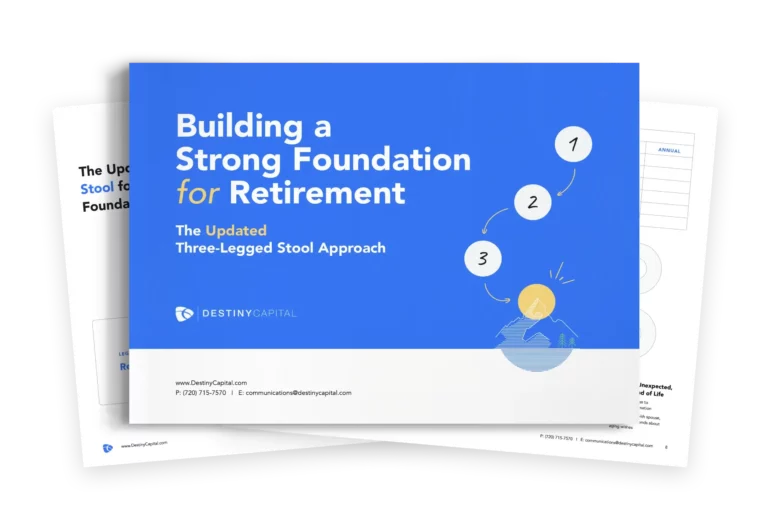Why Elections Have Minimal Impact on Your Investment Strategy
The presidential election is swiftly approaching, causing many investors to wonder how political events will influence their portfolios from now until November.
The answer: Not as much as you may think.
The constant political headlines and social media updates can absolutely stir up marketplace anxiety. Still, it’s vital to remember that elections and investments are often not as tightly linked as they might appear. In fact, the data suggests that maintaining a steady, long-term perspective with your investment strategy is a practical approach to weathering short-term political outcomes.
The Emotional Impact of Elections on Investors
Elections, especially presidential ones, generate intense media coverage — and strong voter opinions. Investors often feel compelled to react, believing that shifts in political power will dramatically alter the market’s course. However, overreacting to political headlines can lead to emotional decision-making, which can be one of the greatest threats to a successful long-term investing strategy.
Feeling uneasy during political uncertainty is understandable. Elections typically bring with them an influx of information and predictions. As a result, investors may focus heavily on immediate impact rather than stepping back to take in the larger economic landscape — a move that could have unnecessary consequences to your financial health. Reacting (or overreacting) too quickly can cause investors to miss out on the benefits of market recoveries, which often follow periods of volatility.
Market Resilience in the Face of Political Change
Many investors fall prey to the misconception that one political party is inherently “better” for the stock market. In reality, markets have historically performed well under various political configurations. History often repeats itself — and U.S. history offers us a compelling narrative of fairly consistent market resilience during election cycles.
Statistics show that since 1952, the S&P 500 has averaged a 7% gain during presidential election years. Most importantly, this trend persists regardless of which party takes the White House. Going back even further in our history, we can see that the market has consistently demonstrated an average return of 11.6% during every election year since 1926.
We don’t have to go back a century to see history repeating itself during election years. For example, during the 2008 U.S. presidential election (and amid the Great Recession), many feared the outcome would further destabilize an already struggling economy. However, while the Dow Jones industrial average fell significantly after election day that year, the markets recovered in the long term, stabilizing and entering a period of sustained growth. Specifically, the S&P 500 index delivered an impressive annualized return of 15.7 over the next eight years.
Even in exceptionally politically charged environments, such as the 2016 U.S. presidential election, when investors braced for extreme volatility, the economy showed resilience. After a brief dip following the election results, the market recovered rapidly, and investors who stayed the course benefited from a post-election rally. Data like this reinforces the idea that political impact on investments tends to be short-lived, and overcorrecting to these events could result in missed opportunities for growth.
Staying the Course: The Power of Long-term Investing
As tempting as it might be to make portfolio adjustments during an election year, sticking to your existing investment strategy is usually the wisest approach. Your current financial plan is likely built around your specific goals, such as retirement, buying a home, or funding a child’s education. These goals typically take decades to achieve. By maintaining a diversified portfolio and resisting the urge to make knee-jerk reactions to election outcomes, investors can potentially weather short-term market fluctuations and capitalize on long-term growth opportunities.
Elections and Investments: Insights From Financial Advisors
Most financial advisors have a consistent message with clients during election years: Elections are part of the natural governance cycle, and retirement planning and investment strategies are built to span many election cycles, not just one. While elections can spark short-term volatility and emotional reactions, investment strategies remain focused on long-term growth that’s aligned with individual goals
Financial professionals also remind investors that political outcomes often don’t have as large an impact on corporate profitability, market growth, or consumer spending as one might think. Instead, the drivers of long-term market performance are typically more closely tied to economic fundamentals like inflation, interest rates, corporate earnings, and global trade—all of which tend to operate independently of who is in office.
Still, financial professionals recognize that clients can take certain steps in any market climate to help preserve investments and offer peace of mind when the economy feels bumpy. Beyond focusing on the long game during an election year, your advisor may also suggest:
Assessing Your Risk Tolerance
Use this time to evaluate whether your current asset allocation aligns with your risk tolerance and time horizon.
Regular Portfolio Reviews
Regular portfolio reviews during periods of uncertainty can assess performance and make changes based on personal financial needs or significant economic shifts rather than short-term political noise.
Staying Diversified
To minimize risk, ensure your portfolio is well-diversified across different asset classes, sectors, and geographic regions.
Considering Tax Implications
While tax laws can change with new administrations, drastic overhauls are rare. However, staying informed about potential changes that could affect your long-term tax planning is wise.
Your advisor may also recommend keeping the lines of communication open during election year shifts in the marketplace. An experienced advisor will be available to discuss your concerns and offer professional insight to help you navigate. Staying focused on investment fundamentals and prioritizing consistency can help investors maintain confidence through election cycles, allowing them to capitalize on market opportunities and progress toward their financial objectives.
Destiny Capital Can Help You Stay Focused on Your Big Financial Picture
As election day approaches, it’s natural to feel concerned about your investments. However, it’s crucial to remember that long-term investing strategies are designed to withstand fluctuations. Political events are just one piece of a much larger economic puzzle. Many factors shape financial markets, and short-term volatility during election cycles is often followed by recovery and growth.
The most important thing to remember in any year is that your financial journey is unique and personal. It should be guided by your goals, risk tolerance, and time horizon — not by who wins an election. Working with a seasoned financial advisor can help develop a personalized investing plan shaped by informed decision-making and a full understanding of your long-term financial goals. Schedule a free consultation with Destiny Capital to learn more.
Share this
Stay Ahead with Smart Investments
Learn how to invest wisely and minimize risks to protect your retirement savings.
Achieve Your Retirement Goals
Get personalized advice to meet your retirement goals. Book your call with Destiny Capital now.




